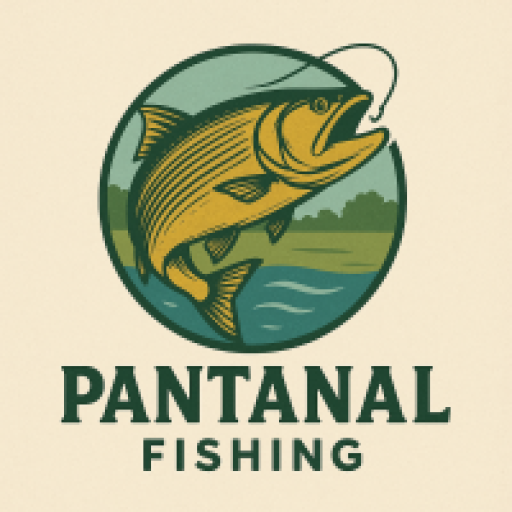Fishing in the Pantanal is more than just sport — it’s part of the region’s culture and ecology. To keep the wetlands healthy and the rivers full of fish for generations to come, Brazil enforces clear rules about when and how you can fish here.
Whether you’re planning your first trip or returning for another adventure, it’s important to understand the fishing seasons, licenses, and conservation regulations.
Best Fishing Season: The Dry Months
-
When: May to September
-
Why: During the dry season, water levels drop, rivers are clearer, and fish gather in channels and lagoons, making them easier to find.
-
What to Expect:
-
Great chances to catch dourado, pacu, pintado, and jaú.
-
Comfortable weather (less rain, fewer mosquitoes).
-
Lodges and guides fully operational.
-
Piracema: Closed Fishing Season
-
When: October to February (exact dates may vary slightly each year depending on state regulations).
-
What It Means:
-
Fishing for native species is prohibited to allow fish to reproduce.
-
Only catch-and-release for non-native species (like tilapia) may be permitted in some areas.
-
Violations can result in heavy fines and equipment confiscation.
-
-
Tip: Even if you visit during Piracema, many lodges still offer wildlife tours, birdwatching, and cultural experiences.
Fishing License Requirement
-
All visitors (Brazilian or foreign) must carry a valid fishing license.
-
Licenses can be obtained online from the state environmental agencies:
-
Mato Grosso (MT): SEMA-MT Portal
-
Mato Grosso do Sul (MS): IMASUL Portal
-
-
Your fishing lodge or guide can also help arrange the license.
-
Always carry your license when fishing — inspections are common.
General Regulations to Know
-
Catch & Release: Strongly encouraged for large native species like the dourado.
-
Size Limits: Each species has minimum and maximum sizes for keeping.
-
Bag Limits: Daily quotas apply, often varying by species and location.
-
Gear Restrictions: Nets and explosives are strictly forbidden; sport fishing rods and lines are standard.
-
Protected Areas: Some stretches of river are designated as no-fishing zones — your guide will know these areas.
Responsible Fishing Tips
-
Respect local communities and indigenous fishing rights.
-
Release large breeding fish to help maintain healthy populations.
-
Avoid leaving plastic or fishing line in rivers.
-
Support lodges and operators that promote sustainable tourism.
| Species (Common) | Scientific Name | Min (cm) | Max (cm) | Bag Limit (Amateur) | Notes |
|---|---|---|---|---|---|
| Jaú | Zungaro jahu | 95 | 130 | 1 native specimen | Within legal size range. |
| Cachara (Tiger shovelnose) | Pseudoplatystoma reticulatum | 80 | 120 | 1 native specimen | Within legal size range. |
| Pintado (Spotted catfish) | Pseudoplatystoma corruscans | 85 | 125 | 1 native specimen | Within legal size range. |
| Pacu | Piaractus mesopotamicus | 45 | 65 | 1 native specimen | Within legal size range. |
| Piraputanga | Brycon hilarii | 30 | — | 1 native specimen | No maximum size specified. |
| Barbado | Pinirampus pirinampu | 60 | — | 1 native specimen | No maximum size specified. |
| Pati | Luciopimelodus pati | 65 | — | 1 native specimen | No maximum size specified. |
| Curimbatá (Papa-terra) | Prochilodus lineatus | 38 | — | 1 native specimen | No maximum size specified. |
| Piavuçu | Megaleporinus macrocephalus | 38 | — | 1 native specimen | No maximum size specified. |
| Jurupoca | Hemisorubim platyrhynchos | 40 | — | 1 native specimen | No maximum size specified. |
| Piranhas | Serrasalmus / Pygocentrus spp. | — | — | up to 5 piranhas | When fishing is open; observe local rules. |
| Dourado | Salminus brasiliensis / S. maxillosus | — | — | catch & release only | Capture prohibited in MS until 31 Mar 2027. |
Additional Guidelines & Context
-
Dourado is currently protected and prohibited from being caught across Mato Grosso do Sul.
-
Amateur anglers’ transport quota: You’re allowed to carry up to 10 kg of fish plus one individual fish (of any allowed species), except for piranhas, which you can carry up to five specimens.
-
Catch & Release: Highly encouraged for large predators like Pintado, Jaú, and especially Dourado whenever possible—even if not explicitly stated—helping ensure healthy fish populations for future generations.
How to Use This Page
-
Bookmark this as your go-to reference before your next trip—species outside the legal size range cannot be kept.
-
Ask your lodge or guide to confirm current regulations—laws may have been updated.
